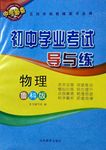题目内容
________is your nationality and ________ is the population of your country?
- A.What; what
- B.What; how much
- C.Where; how many
- D.Which; how
问你的国籍是什么,用what;后面问国家的人口数是多少,用代词what

 七星图书口算速算天天练系列答案
七星图书口算速算天天练系列答案 初中学业考试导与练系列答案
初中学业考试导与练系列答案
| |||||||||||||||||||||||||||||||||||||||||||||||||||||||||||
Lily,Susan, David, Chris和Michael分别计划假期去景点旅游,阅读下面旅游杂志上的6个旅游广告(A、B、C、D、E和F),从中找出符合5位兴趣爱好的最佳选项,选项中有一项是多余选项。
1. David:I like a relaxed and simple lifestyle.
2. Lily:I enjoy shopping, dining and nightlife. I want to surf and learn about Hawaiian culture.
3. Susan:I like a relaxed lifestyle. I want to take a scenic helicopter and watch the amazing eruptions( 火山喷发) of red-hot lava.
4.Chris:I like surfing and mountain-climbing and enjoy shopping, dining and nightlife.
5. Michael:I love outdoor activities and want to take a scenic helicopter.
| A Oahu Island – the gathering place Home to 80 per cent of Hawaii’s people, Oahu lets you enjoy the bustling and colourful city life of Honolulu, and world-famous Waikiki beach. Glamorous Waikiki is the main place for sun and surf. Otherwise go swimming, snorkeling, or relax and sunbathe on the many other fabulous beaches. Oahu is the place to be for shopping, great dining and great nightlife! But if nightclubs aren’t your scene, you may like to visit the museum at Pearl Harbour, or climb Nuuanu Oali mountain to find the best view of the whole island. |
| B Hawaii – the big island Hawaii is also the name of the biggest island of the group. If you’d like a more relaxed lifestyle with friendly locals, then the Big Island has plenty of room for you. Take a helicopter ride around snow-capped Manna Kea, the highest mountain in the world if you measure from the ocean floor. Or visit Kilauea, the world’s largest active volcano(活火山). Hawaii’s dramatic black lava landscape even include beaches with black sand. |
| C Kauai – the garden island Small and uncrowded, Kauai is the perfect gateway for families and couples looking for a peaceful holiday. It has world-class golf courses, with great views! This island is ideal for those who love outdoor activities. The beautiful green Na Pali cliffs and coast are a great place to go camping, hiking and horse riding. You can go kayaking on the river, or take scenic helicopter flights. |
| D Maui – the rainbow island Maui combines beautiful scenery with luxury resort-style living. No matter where you stay, you’ll see many wonderful rainbows. Of course there are the lovely beaches for snorkeling, surfing and whale watching, but you can also hike up Haleakala, the world’s largest inactive volcano. The town of Lahaina offers a lu’au - a fun evening of hula dancing and traditional banquet. It isn’t as busy as Waikiki, but there are still plenty of shopping, fine restaurants and nightlife. |
| E Lanai – Hawaii’s best-kept secret Far away from the crowds, this island offers you a totally relaxing experience. It is a haven for all kinds of wildlife. You can go fishing on the deserted beaches, or just laze there. Maybe you can climb Lanaihale mountain. From the top you can see all the other islands. |
| F Molokai – very different The lifestyle here lets you understand the way Hawaii was many years ago. If you’re looking for a total escape from a busy city life, this is definitely the place. Forget shopping, fancy dining and nightlife. Let a guide bring you on a horseback or bicycle tour of the rugged but beautiful scenery. Hike over the stunning cliffs of the Kalaupapa peninsula. The most important thing to do on Molokai, though, is relax and slow down. |